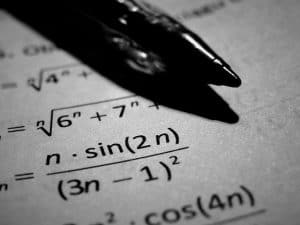Within the persona group there’s lots of bias and superiority cluttering the message boards and boards of every sort. Many individuals take into account their sort to be superior to others or assume {that a} choice for considering robotically implies a choice for information and intelligence. At this time I wish to discuss intelligence; the totally different sorts of intelligence that exist and which varieties are expert in these totally different areas of intelligence. My hope is that this text will showcase a number of the strengths of every sort, and also will enable us to have a fuller appreciation of every sort’s presents, talents, and abilities.
Undecided what your persona sort is? Take our new persona questionnaire right here. Or you’ll be able to take the official MBTI® right here.

This publish comprises affiliate hyperlinks. I solely advocate merchandise I really imagine in.
Estimated studying time: 11 minutes
What Is Intelligence?


The Merriam-Webster dictionary defines intelligence as “the power to be taught or perceive or to cope with new or making an attempt conditions: additionally: the expert use of purpose (2) :the power to use information to govern one’s atmosphere or to suppose abstractly as measured by goal standards (equivalent to exams).”
Different phrases for intelligence
Shrewdness: A intelligent, discerning consciousness and hardheaded acumen.
Acumen: The power to make good judgments and fast choices, usually in a selected area.
Intelligent: Skillful or adroit in utilizing the fingers or physique or mentally fast and resourceful.
Wit: Astuteness of notion or judgment. The power to narrate seemingly disparate issues in order to light up or amuse.
Mind: The capability for rational or clever thought particularly when extremely developed.
Discernment: The standard of with the ability to grasp and comprehend what’s obscure.
Simply these definitions I can see that differing kinds can be thought-about extra shrewd whereas others can be extra intelligent and nonetheless others extra mental. Understanding that there’s not one option to outline intelligence is necessary.
Misconceptions About Intelligence
“The youths on the universities … might pose you entrapping questions or give baffling solutions. We by no means set a lot retailer by them or their affected superiority, remembering that they had been solely at their books, whereas we had been commanding males.”– Winston Churchill, an ESTP
Many people assume that an innate capability to unravel complicated math issues makes somebody clever. Our efficiency on standardized exams is commonly a deciding think about what faculties we will attend and due to this fact what jobs we will attain. However are standardized exams and math performances actually the final word check of intelligence?
Let’s check out some influential scientists and inventors who actually struggled with math.
Michael Faraday: He invented the primary electrical motor, together with the primary electrical generator. He additionally invented the rubber balloon, laid the groundwork for refrigeration know-how, and explored electromagnetism. He’s described by most biographers as being “mathematically illiterate.” His contributions to science had been purely that of an experimentalist.
Alexander Graham-Bell: You understand, the man who invented the phone? Nicely, he discovered math boring. Based on biographer Robert V. Bruce, he was “bored and therefore careless in figuring out the ultimate reply as soon as he discovered the strategy.” His grades had been by no means significantly good and his mathematical aptitude by no means improved even in his later years.
Thomas Edison: He’s thought-about America’s biggest inventor, however he at all times had a robust dislike for higher-level math. When as a boy Thomas Edison was pressured to learn Isaac Newton’s Philosophiae Naturalis Principia Mathematica (“Mathematical Rules of Pure Philosophy”) he was left with nothing however a “distaste for arithmetic from which I by no means recovered.”
Clearly there are a lot of totally different sorts of intelligence, they usually can’t merely be restricted to 1’s capability at math or summary reasoning.
The various kinds of intelligence:


In 1983 an American developmental psychologist named Howard Gardener described 9 kinds of intelligence. I believe any of the 16 persona varieties can use any of those types of intelligence. Some might come extra naturally to sure varieties than to others, nevertheless.
Naturalist Intelligence
This type of intelligence is worried with understanding and dealing with crops and residing issues. It’s delicate to bodily options on the planet round us. Botanists, farmers, ecologists, hunters can all have this type of intelligence.
Sensors might have a bonus with pure intelligence as a result of they’re extra targeted on the pure, concrete world round them. They prefer to be taught by experimenting in a hands-on approach with the outer world. Amassing info is deeply interesting to them, and seeing their information lead to real-world affect is profoundly satisfying to them.
Musical Intelligence
This type of intelligence is expert at discerning pitch, rhythm, tone, and timbre. It permits us to create, recreate, and mirror upon music. Folks with musical intelligence are delicate listeners who discover each sound intimately. Musicians, composers, and performers usually have this type of intelligence.
I can’t discover any conclusive proof {that a} explicit sort can be extra superior at musical intelligence than one other.
Logical-mathematical Intelligence
The power to calculate, quantify, take into account concepts and hypotheses and perform mathematical equations and operations. The power to make use of summary, symbolic thought, sequential reasoning abilities, and inductive and deductive considering patterns. This kind of intelligence is widespread amongst mathematicians, detectives, engineers, and scientists.
Whereas every kind may be expert at this type of intelligence, considering varieties have a tendency to indicate a pure reward and choice on this space primarily based on standardized aptitude exams (MBTI® Handbook – Third Version).
Existential Intelligence
The power to understand deep and significant questions like why we’re right here, the that means of life, why we die, and the way we obtained right here. That is the kind of intelligence employed by philosophers, spiritualists, and even authors and poets at occasions.
Whereas every kind may be expert at this type of intelligence, intuitive varieties have a tendency to indicate a stronger choice for this space.
Interpersonal Intelligence
The power to know and empathize with others. This consists of verbal and nonverbal communication, the power to shortly see modifications in temper and conduct, sensitivity to feelings and temperaments, and the power to see issues from different folks’s views. Academics, psychiatrists, actors, politicians, and social staff all use this sort of intelligence (some extra successfully than others).
Whereas every kind can develop talent with this type of intelligence, feeling varieties have a tendency to indicate a pure reward on this space.
Bodily-kinesthetic Intelligence
The capability to make use of a wide range of bodily abilities and/or manipulate objects within the outer world. This intelligence entails the expert use of timing, coordination, and mind-body concord. Athletes, dancers, surgeons, and troopers have a tendency to make use of this sort of intelligence.
Whereas every kind can develop a talent at this type of intelligence, sensing/perceiving (SP) varieties are inclined to have a pure reward for this space. Their pure attunement to the outer world in addition to their expertise for changing into “one” with the atmosphere provides them a pure affinity right here.
Linguistic Intelligence
The power to make use of language to precise and admire complicated meanings. Understanding the order and that means of phrases and making use of meta-linguistic abilities to mirror our use of language. Journalists, poets, authors, and public audio system all use this sort of intelligence.
Based on the MBTI® Handbook, sensors are inclined to carry out higher with expressive writing whereas intuitives carry out higher with reflective writing. Intuitives carry out worse on reporting/journalism than sensors, however carry out increased on conceptual writing. Linguistic intelligence might, due to this fact, be relevant to any sort, however in several methods. So far as the kinds that take pleasure in writing, INFPs, INFJs, INTPs, ENFPs, ENTPs, and ENFJs had been the kinds who listed this as a favourite leisure exercise in a case examine on sort and leisure actions (MBTI® Handbook Third Version). Sorts underrepresented in having fun with writing had been ESFJs, ISFPs, ISTPs, and ISTJs. This doesn’t imply they by no means take pleasure in writing or that none do, however it does imply it isn’t favored by nearly all of that sort on this case examine.
Intra-personal Intelligence
The capability to know oneself, one’s ideas, one’s feelings. The power to check one’s feelings and motivations and use this intelligence to plan and direct one’s life. Characterised by an appreciation for the human situation. This type of intelligence is commonly present in non secular leaders, psychologists, philosophers, and poets.
Whereas every kind can develop a talent at this type of intelligence, introverted feeling varieties (FPs) are inclined to have a pure reward on this space.
Spatial Intelligence
The power to suppose in three dimensions. This consists of with the ability to make use of psychological imagery, spatial reasoning, picture manipulation, inventive abilities, and produce concepts from the creativeness into the actual world utilizing hands-on strategies. Sailors, troopers, pilots, artists, and designers all are inclined to exhibit spatial intelligence.
I can’t discover any conclusive proof {that a} explicit sort can be higher in any respect types of spatial intelligence than one other.
Instinct and Sensing and Intelligence
Within the 1985 MBTI® Handbook, Myers and McCaulley offered a complete overview of a long time of examine relating MBTI® profiles with standardized check outcomes. Based on their research, intuitives carried out higher at standardized exams and SAT math scores tended to be increased for intuitive and considering varieties.
This doesn’t imply that sensing and/or feeling varieties can’t get good SAT scores (I knew an ESTJ who obtained a 1530 SAT rating and an ESFJ who obtained a 1510 rating). Nevertheless, statistically talking, the NTs are inclined to carry out higher right here and Myers and McCaulley clarify why within the assertion beneath:
“Sensing usually operates slowly so as to be certain, and Instinct is by definition a type of notion that entails flashes of perception, hunches, and fast notion by impressions. Neither sort significantly enjoys taking standardized aptitude exams such because the SAT or the Graduate Report Examination (GRE®); Intuitive varieties are, nevertheless, extra affected person with them. They extra shortly get to the gist of an abstractly worded sentence stem, report a attainable reply by trusting their hunch, and transfer onto the following query. Sensing varieties even have hunches however have a tendency to not belief them except by follow they be taught that these “guesses” may help them with timed workouts presenting a wealth of complicated materials.”– The MBTI® Handbook: A Information to the Growth and Use of the Myers-Briggs Sort Indicator® Instrument Third Version
Now you would possibly take a look at this and suppose “oh, properly that solutions my query! Intuitives are positively smarter than sensors!”, however let’s take into consideration this for a second. Not one of the analysis conclusively states that they’re extra clever, merely that they carry out higher on exams as a result of they belief their hunches and get the gist of summary wording sooner. Sensors could also be simply as clever however mistrust their hunches which might put them at an obstacle when performing timed standardized exams. They might additionally carry out higher in concrete or sensible abilities than intuitives would (in actual fact they most likely do). Myers and McCaulley gave this warning:
“It is vital to not conclude that ES varieties are much less clever than IN varieties. Scholastic aptitude exams measure the I and N facets of intelligence significantly valued in tutorial work; they aren’t designed to measure the sensible and utilized intelligence of E and S”– Myers and McCaulley, MBTI® Handbook 1985, pp. 109-110).
“Sort concept means that Sensing varieties can and can produce unique concepts however normally after first consulting what they know for positive a few matter. They fastidiously…observe every step in sequence. Thus grounded in actual information, they will then produce the type of huge image that doesn’t lack intimately (as so lots of the preliminary desires of Intuitive varieties do). Conversely, Intuitive varieties can greatest be taught to build up mandatory info if their imaginations are first allowed to roam free, with out obstacle or extreme guidelines. As soon as impressed, Intuitive varieties then have psychological vitality left to fill the lacking items.”– The MBTI® Handbook: A Information to the Growth and Use of the Myers-Briggs Sort Indicator® Instrument, Third Version
Considering and Feeling and Intelligence
Considering varieties choose a scientific method to studying. They like justice and equity of their studying atmosphere greater than they want a private connection. In addition they choose reality orientation and serialist studying.
Feeling varieties are inclined to choose holistic studying and are extra involved with ethical or care concerns.
Each considering and feeling college students can carry out simply as properly, however they carry out higher if a trainer tailors their type to the coed. Considering college students are extra receptive when they’re offered with logical arguments and causes behind assignments. Feeling college students are extra receptive after they really feel supported within the classroom and there’s a human ingredient to the task.
Each considering and feeling varieties may be clever and scientifically-focused. The considering/feeling issue solely tells us what’s extra more likely to inspire them of their discipline.
Considering varieties are extra motivated by impersonal execs and cons and by discovering achievement and proving competence.
Feeling varieties are extra motivated if their work will profit or affect folks in a constructive approach or traces up with a private worth.
“People aren’t pretty much as good as we must be in our capability to empathize with emotions and ideas of others, be they people or animals on Earth”– Neil de Grasse Tyson, astrophysicist, science popularizer, and a rumored ENFJ
“Be much less interested by folks and extra interested by concepts.”– Marie Curie, physicist, chemist, and a rumored INTP
In Conclusion…
Anybody is able to nice intelligence no matter what persona sort they’ve.
We are able to marvel on the scientific genius of Isaac Newton, an INTJ.
We may be impressed by the generosity and humanitarian work of Mom Teresa, an ISFJ.
We may be amazed by Harry Houdini, a mastermind escape artist, and an ESTP.
We are able to have our hearts perpetually impacted by the phrases of William Shakespeare, an INFP.
The record might go on and on…
There isn’t a “extra clever” sort. Every sort has their very own model of intelligence. So for those who’re ever socializing in your favourite persona sort group and somebody decides to troll you and discuss how your sort is “much less superior” than theirs simply keep in mind that A) this particular person actually should not have something helpful to do with their time. B) Your persona sort has nothing to do with how clever or unintelligent you might be.
What Are Your Ideas?
I’d love to listen to what you suppose! Let me and different readers know within the feedback.
Discover out extra about your persona sort in our eBook, Discovering You: Unlocking the Energy of Character Sort.


Different Articles You Would possibly Get pleasure from:
How You Use Your Mind Primarily based on Your Myers-Briggs® Character Sort
The Management Kinds of Each Myers-Briggs® Character Sort
How Every Myers-Briggs® Sort Reacts to Stress (and The right way to Assist!)

Subscribe to Our E-newsletter


Wish to uncover extra about persona sort? Get the within scoop with Susan Storm on all issues typological, together with particular subscriber freebies, and reductions on new eBooks and programs! Be a part of our e-newsletter as we speak!








